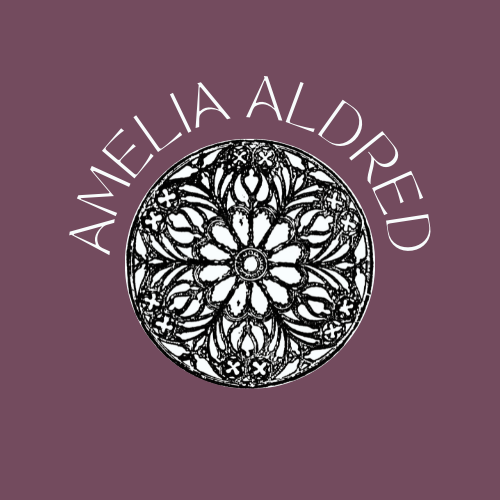 Decide what the goal of the group is and communicate it clearly. Generally, there are two types of writing groups: writing date groups and workshopping groups. The goal of a writing date group is to devote time to writing; the goal of a workshopping group is to, well, workshop. Some groups do a mix of the two. Regardless of the set up, communicate clearly to the participants what the purpose of the group is. It’s frustrating for everyone if a writer shows up expecting to get feedback and doesn’t, or if someone shows up expecting to have time blocked out for writing and doesn’t get it.
Decide what the goal of the group is and communicate it clearly. Generally, there are two types of writing groups: writing date groups and workshopping groups. The goal of a writing date group is to devote time to writing; the goal of a workshopping group is to, well, workshop. Some groups do a mix of the two. Regardless of the set up, communicate clearly to the participants what the purpose of the group is. It’s frustrating for everyone if a writer shows up expecting to get feedback and doesn’t, or if someone shows up expecting to have time blocked out for writing and doesn’t get it.
Figure out a regular meeting place or at least a regular way of communicating where you’ll be meeting. Inconsistent meeting times or places is swift way to kill a writing group, especially if the participants don’t know each other well. The point of a writing group is to focus your energy on writing–if you have to spend energy figuring out logistics, then that’s less energy spent on the actual writing. Here are the pros and cons of a couple of common meeting places:
a) Libraries: My favorite place to meet writing groups–they’re free, they are open to all ages, they are usually open until at least 8pm, and they often have meeting rooms or study tables available. The Chicago Public Library system just launched an online reservation system for their meeting rooms, which is one of the most exciting things that happened this summer (I lead a quiet life). The cons? You usually need a library card to make a reservation, there might be a lot of competition for particular time slots, no food or drink to purchase.

b) Coffeeshops: They are popular with writers for a reason, you can watch people without engaging with them, there are table and chairs and outlets and often WiFi, baristas are used to people writing there, coffeeshops are open to all ages, and of course, there’s readily available bean juice. Cons include: you generally can’t reserve areas, which can be a problem is your writing group is big and there’s less privacy if you’re workshopping. Further, while you can get away with just writing and not buying anything, it’s not recommended if you want to stay in the good graces of the staff–and if you’re meeting there regularly, you want to be in their good graces.
c) Private Homes: I occaisionally run writing group session out of my home–it is convenient to the organizer, you can bring or make food, the group can stay as long as they want (provided you’ve worked it out with your roommates or partner), there’s lots of privacy if you are workshopping stuff that you don’t feel like shouting over the rattle of coffeecups.* However, I’ve found that doing workshops or writing date sessions in a private home can feel more like a social get together which means it’s easy for the writers to get distracted. And of course, there’s the safety and comfort issue–not everyone feels comfortable going to someone’s house, especially if you don’t know the host well. And if your’re the host, it means you have to tidy up somewhat.**
d) Unusual spots: During National Novel Writing Month, there’s a lot of writing meet ups in unexpected places such as museums, hookah bars, train cars, and theatres. There’s something really fun about meeting in place you don’t normally write in, it can spark creativity and be a good way to get out of a rut. But of course, those places are less convenient–limited space, ticketed entry, etc.
If you are workshopping, have some agreed upon guidelines. There are a lot of methods for workshopping, this post isn’t advocating a particular method but I do think that workshop participants should have an idea of what to expect (will they get written notes? Are they allowed to respond to comments?). If there are rules you want to lay down, make that clear from the beginning (such as submitting no more than 10 pages, or submitting at least a week in advance).
If you are meeting to just get writing done, still structure the session. I run a chapter of Just Write Chicago, in which we do exactly that–just write. However, our writing sessions still have a regular format: we just write for about an hour and a half, then we spend 20-30 minutes introducing ourselves and talking about any writing issues that have come up that week. Having a regular format helps focus the writing time and pushes folks to actually get stuff done, which is the point of writing date type groups. I’m also a big fan of actually talking to people at the end of a writing session, it helps build community and gives people a chance to network. And who else is going to listen to you talk about your imaginary friends that live on the page?
Think about community management. If you are organizing a group of humans, whether it be a writing group, a sports team, or a rag-tag heist gang, you are going to have to think about community. What are your values as a community and how do you practice them? Do you want your writing group to focus on a particular demographic, such as novice writers, or working parents? If so, how do you make your group accessible and helpful to them? Similarly, if you value having a space for diverse experiences and voices, it’s worth looking at the specific ways white writers in workshop groups disregard writers of color and the ways in which women are disregarded by men in co-ed meetings so you can avoid those pitfalls. Yes, it’s a lot to think about, but these issues are going to exist regardless of whether or not you address them–so you might as well be a responsible organizer and deal with them.

Check in with the group and yourself every so often. I used to be really bad about this and would keep on attending or running a writing group, regardless of whether or not it was useful or fun for me. It should be at least one of those things, preferably both. So check in with everyone and see if it’s still worthwhile–people’s schedules and goals change, so sometimes even an awesome group stops working. It’s hard enough to make time for writing, don’t let a writing group get in the way of writing.
*Fun fact: In the 1940s Anais Nin ran a writing group in her apartment at the end of every month when all of her writer friends were broke and desperately trying to make rent. They ate oatmeal (because that’s all they could afford), wrote naughty stories for about twelve hours straight, then sold them to a mysterious collector who paid by the page. Flush with cash, the writers paid their rent and went on writing their novels and plays for the rest of the month. Everyone won!
** For me, that usually means running around about 10 minutes before people arrive, frantically shoving laundry in the bedroom
